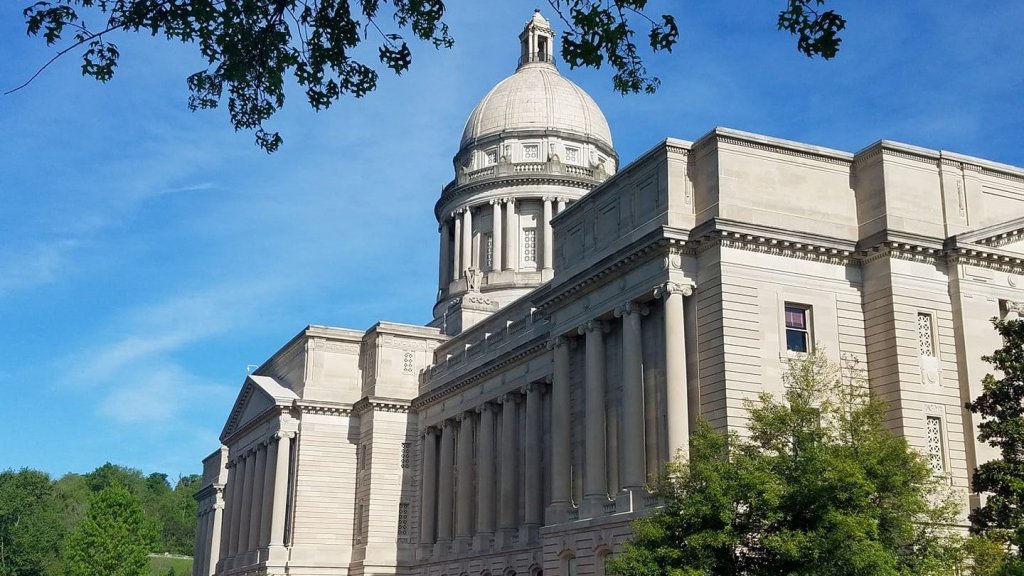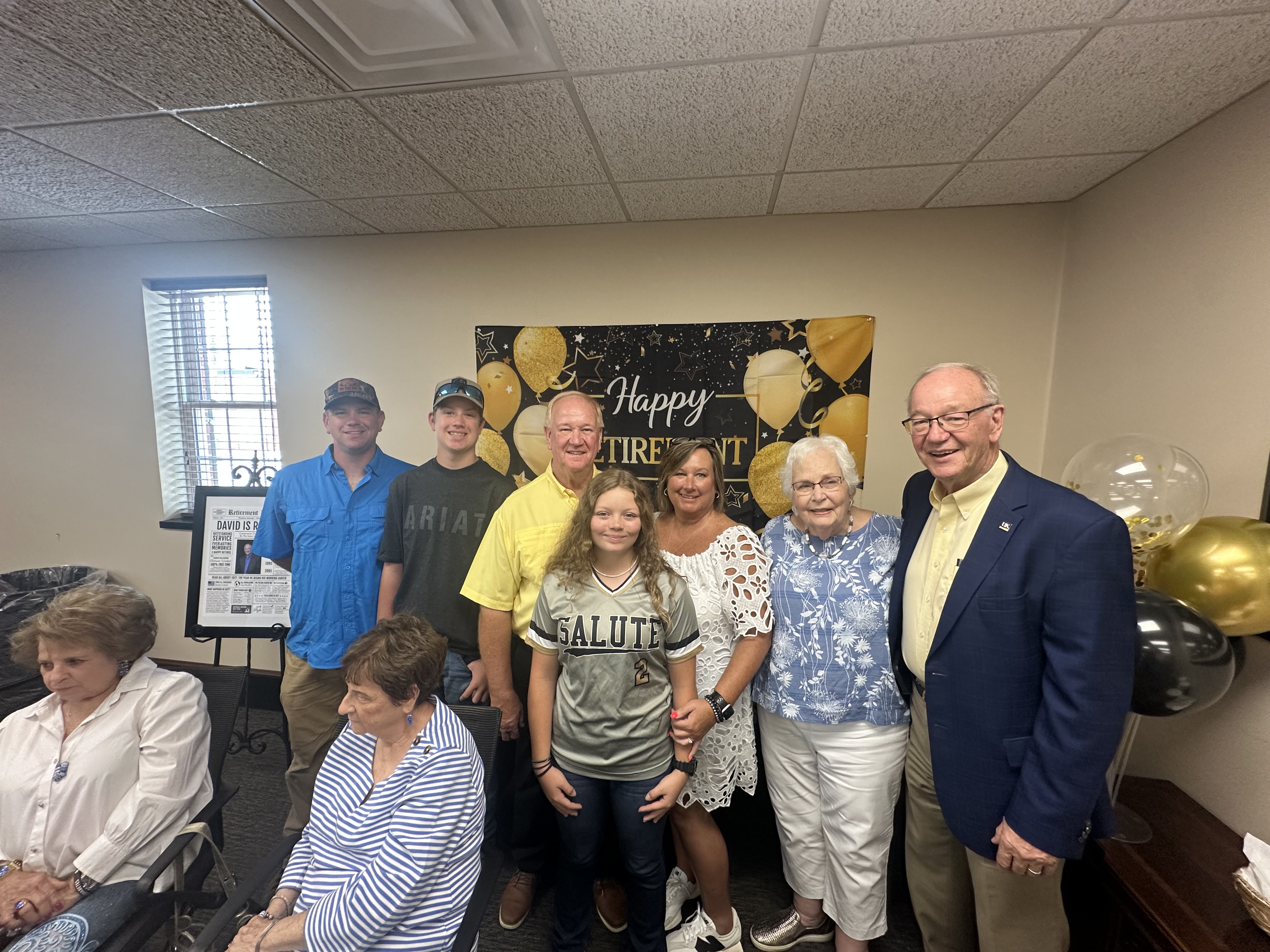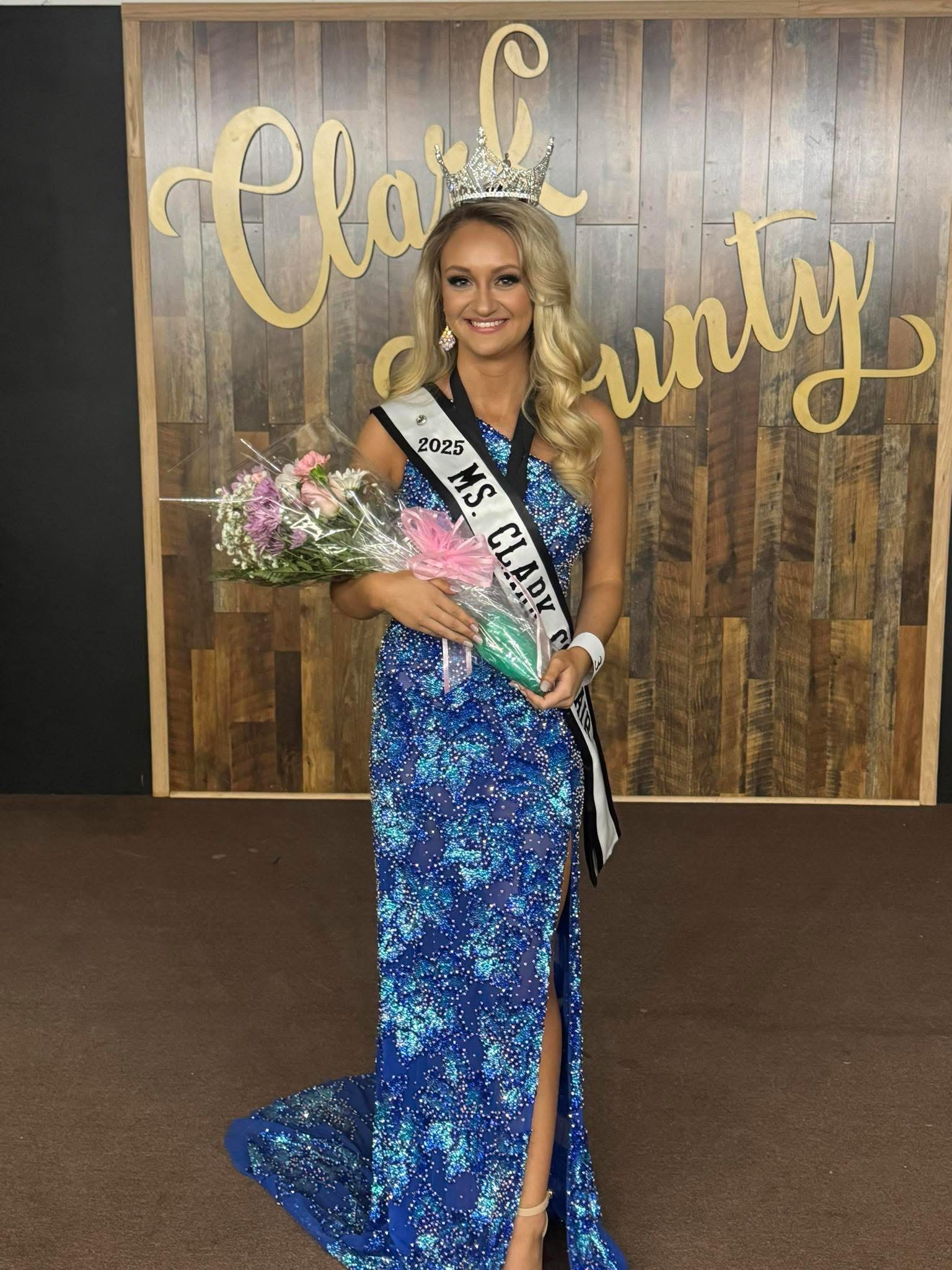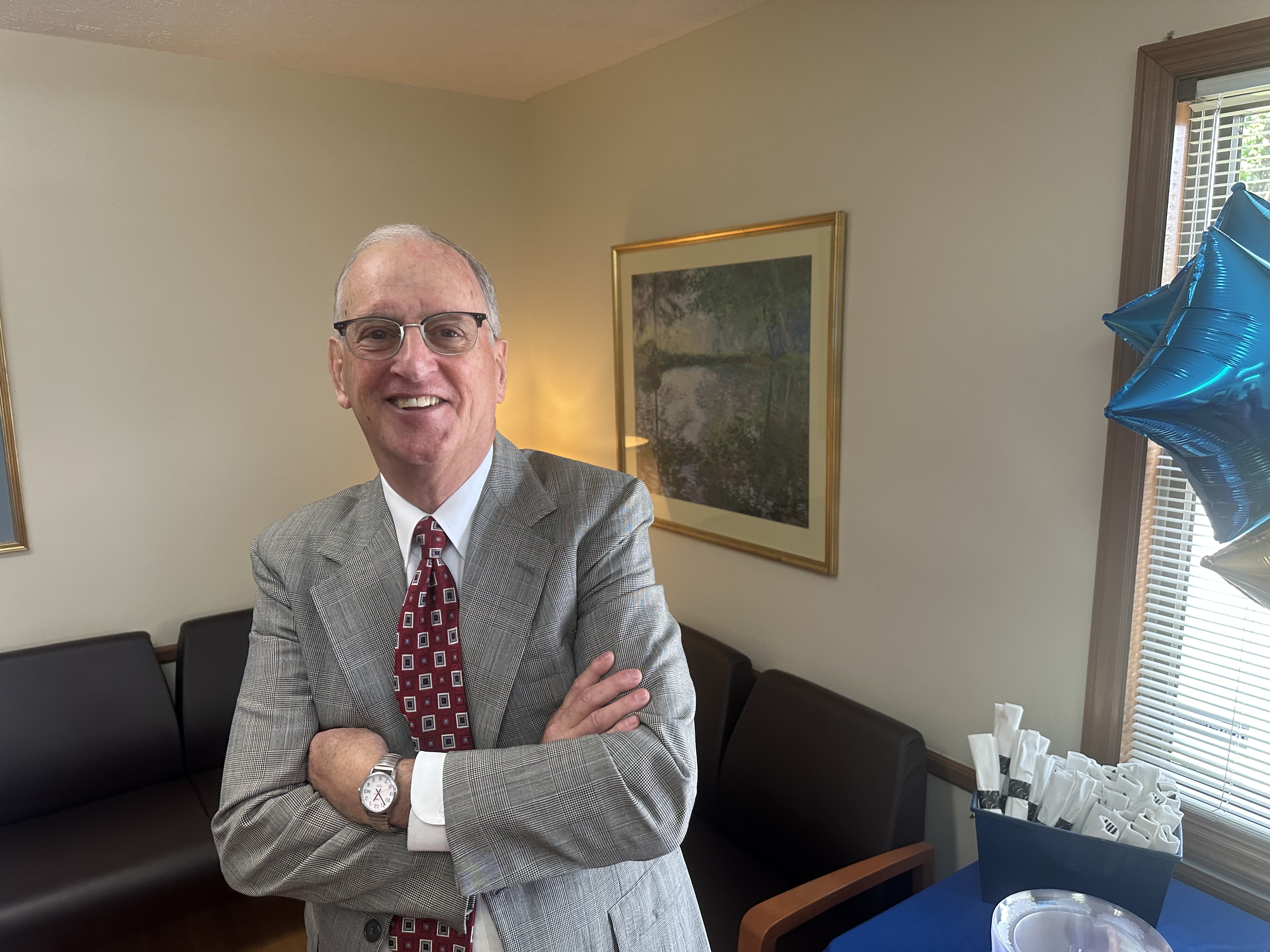Alvarado gives update on action in state legislature
Published 8:25 pm Saturday, March 20, 2021
|
Getting your Trinity Audio player ready...
|
By Sen. Ralph Alvarado
I am welcoming some return to a normal schedule as the 30-day session of the Kentucky General Assembly has reached ‘the veto period.’ Two more days of session are reserved for March 29 and 30 to allow the House and Senate to consider passing additional legislation, and most importantly, to have time to override vetoes of any bills that have already passed. In this week’s legislative update, I want to outline some of the most prominent legislative measures that are likely to become enacted.
The elephant in the room this year has been the need to enact another one-year budget. As a reminder, budgets are traditionally passed every two years, but with last year’s uncertainty brought on by COVID-19, only a one-year budget was enacted. Therefore, another one is required for this session. All that is left to do now is await the governor’s decision to either sign or veto the budget bill. If vetoed, the General Assembly will override his veto upon our return to Frankfort on March 29.
The budget that was enacted is a continuing budget taking a careful and conservative approach as we continue to navigate the uncertainty of COVID-19. The state has received a lot of one-time dollars from the federal government through the CARES act and the most recent federal stimulus package. Due to these injections of federal funds into our society’s various sectors, the economic outlook and state revenue may be artificially inflated. There is no sure way of knowing what state revenues or the economy will look like once there is no stimulus money helping to prop things up. It would be financially irresponsible for the state to use one-time dollars to put Kentucky taxpayers on the hook for recurring expenses in future years when we will not be able to lean on federal funds.
An essential aspect of the budget is that it maintains legislative authority on allocating funds, as required by the Constitution of Kentucky. The bill stipulates that the General Assembly must authorize the use of these monies. $37 million in federal funds has been designated to provide grants to detect, diagnose, trace and monitor COVID-19 infections in congregate and vulnerable population settings. Additionally, $10 million in state dollars will go to the School Facilities Construction Commission for schools recently damaged by flooding.
A critical element in the economic growth of our state is people’s access to internet services. Reliable broadband can determine whether or not companies choose to locate in communities. With the reliance on virtual learning for our students this past year, we have seen how a lack of access to internet services only exacerbates Kentucky students’ struggles. Furthermore, as COVID-19 forced us to rely on more virtual services, we have seen growth in telehealth services. This session, we have requested the Cabinet for Health and Family Services to review such services because they will only become more prominent in the future. Bringing broadband access to all communities and homes in our Commonwealth can only improve our economy, education, and healthcare outcomes.
With this in mind, the legislature passed House Bill (HB) 320, allocating $250 million in federal money to expand access to broadband connectivity. However, the bills stipulate that no more than $50 million can be spent before April of next year to make sure efforts are deliberate, effective, and will go to the areas of most need. This initial $50 million will get the ball rolling. Legislators will return to session next January to provide ample opportunity to assess the efforts made between now and then to determine the best path forward. The funding will be targeted to utilize existing infrastructure and the experienced workforce through electric co-ops. In reality, the allocated funds will equate to $500 million because the $250 million will be used as matching funds for the projects.
Other bills that have made final passage and that will qualify for a veto override should the governor veto them include:
• HB 95 aims to help Kentuckians struggling with diabetes by capping the cost of out-of-pocket insulin at $30 for a 30 day supply. It applies to state-regulated, comprehensive, private health insurance plans and the Kentucky employee health plan. It does not apply to Medicare, Medicaid, or self-funded health plans.
For too long, the high cost of insulin has caused patients to ration their supply, resulting in a loss of life. Others have had to make desperate financial decisions to maintain their access to their insulin. Kentucky ranks 8th in the nation in diabetes prevalence and is the 5th highest state in diabetes-related deaths. Between 2000 and 2018, the percentage of Kentuckians diagnosed with diabetes doubled. Diabetes can be associated with heart failure, stroke, blindness, and more.
• Senate Bill (SB) 8 provides for opting out of mandatory vaccinations for people with religious or conscientiously held beliefs. The bill maintains employer immunization policies for employees of schools, universities, and health care organizations. I believe we should respect each person’s individual decisions, but as a medical professional, I do encourage you to choose to be vaccinated.
• House Joint Resolution 77 extends specific COVID-19 regulations an additional 60 days. There were numerous executive orders and regulations that were good. The resolution is proof that the legislature can be a part of the decision-making process, but unfortunately, the governor and his administration have wanted to work unilaterally. This joint resolution, which can carry the force of law, will be effective only if the court ultimately rules in favor of the legislature on pending litigation. The governor is challenging HB 1 and SBs 1 and 2. Those three bills, if upheld, provide the legislature a seat at the table as life-altering executive decisions are made. It is worth noting that Kentucky is the exception to the rule regarding executive authority during a state of emergency. The bills being challenged by the governor would merely bring Kentucky more in line with other states in regards to oversight of executive authority during times like these.
Another bill that received the attention of a lot of citizens was HB 563. The bill aims to help and meet Kentucky students’ needs by establishing open borders among public school districts, requiring them to implement policies to allow students outside of the community to attend schools within the district. Per pupil funding (SEEK) would follow the student to the school district they attend. For counties with populations greater than 90,000, the bill sets up Educational Opportunity Accounts (EOA’s), funded through tax-deductible donations, to help eligible families at certain poverty levels attain financial assistance. These funds can be used for various educational needs, including attending a different public school or private school, purchasing resources they need, or even tutoring.
I have long been a proponent of school choice. Currently, the only school choice in Kentucky is for families with the financial means to afford it for their children. This bill is about less fortunate students who do not have the financial means to receive the education they and their family desire. The EOA portion of this bill has been set up as a five-year pilot project. This pilot program will allow us to review the benefits of EOA’s, at which time the legislature can reassess. Additionally, as part of our commitment to early childhood education, I suspect we will see a bill to fund full-day kindergarten before the end of session.
I am happy to report that several bills that I sponsored made final passage. They have been outlined in my previous legislative updates. They include measures to ensure public trust in the donation of human organs (SB 12), improve state efforts to combat and address colon cancer and dementia-related diseases (SBs 16 and 74), enable care for those struggling with mental health issues (SB 21), allow private entities and organization to assist the insured with their health care costs (SB 44), and strengthen access to needed care while protecting patients from unnecessary costs (SB 45). I am grateful to my colleagues for their support of these bills.
Many bills have not yet passed but can still be passed on the final two days of session. However, if they are vetoed, there is no recourse for overriding them, and they would not become law. One, in particular, is a bill related to Kentucky elections that has received bipartisan support, and I expect the governor would sign in to law.
HB 574 expands access to voting by establishing three days for early voting, including a Saturday. This will ease access for working people, especially first responders, who will not miss time on the job. It will also transition Kentucky elections toward universal paper ballots statewide to ensure there is always a paper trail connected to each vote. It also enhances state officials’ ability to remove the names of deceased voters from the voter rolls. Since taking office, Kentucky Secretary of State Michael Adams has removed nearly 60,000 names from its voter rolls. These include those who are deceased, have moved out of the state, or those who have committed crimes that disqualify them from voting. Prohibition and strengthening of penalties are included for “ballot harvesting,” which gathers and submits completed absentee or mail-in voter ballots by third-party individuals, volunteers, or workers, rather than submission by voters themselves directly to ballot collection sites. Additionally, the bill makes the online voter portal permanent for absentee ballots to maintain transparency and for both voters and election officials.
The Kentucky General Assembly has reached the homestretch of the 2021 Session. Now we await the governor’s decision on the various legislation we have placed before him. Please feel free to call me about these issues or any other public policy issue toll-free at 1-800-372-7181 or to email me at Ralph.Alvarado@LRC.ky.gov. Be safe. God bless.






